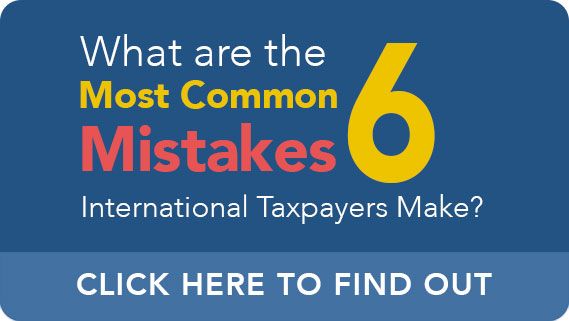Accountant for Foreign Nationals that Own Real Estate in the US
Though it may seem that being a citizen of a foreign country should exempt you from U.S. tax laws, anyone who owns property in America is almost certain to face some sort of financial obligation to the U.S. government. These obligations could take many forms, from income taxes paid on rent you collect to property taxes paid on land or a home, plus any taxes you are required to pay when you first acquire your property. All told, owning U.S. real estate from afar can be a complicated endeavor, especially for someone unfamiliar with the many factors you must take into consideration. Luckily, you are not alone.
The specialists at U.S. Tax Help have decades of experience working on international tax preparation and planning for clients around the world. This group of professionals can guide you through every phase of ownership, from the initial purchase to the final sale and at every step in between. Let the experts at U.S. Tax Help put their knowledge and skill to work for you; visit us online or call (541) 362-9127 today.
Uses of US Real Estate by Foreign Nationals
The exact nature and use of property owned by foreign citizens is a major determining factor in the amount of taxes that owner will be required to pay. Those who maintain a residence in the U.S., whether primary or secondary, will have different tax obligations than someone who owns a building but rents it out to a tenant. Below are some of the differences between the two.
U.S. Residency
There are substantial differences in how the Internal Revenue Service (IRS), the tax arm of the U.S. government, treats those it deems “residents” and those it does not. Regardless of whether you are an American citizen, those who are considered to be living in the U.S. will have their worldwide income taxed by the IRS, and they will be required to file an annual tax return as well. For the purposes of a foreign national, residency is determined by one of two tests: the green card test or the substantial presence test.
- The green card test is based on whether you have received an alien registration card (Form I-551), also known as a “green card,” from the U.S. Citizenship and Immigration Services. Those with a green card are considered lawful permanent residents and are taxed as such.
- The substantial presence test is a bit more complicated, but it essentially looks at the number of days you have been physically present in the United States. You are considered a U.S. resident alien if you have been in the U.S. for at least 31 days during the current year and a total of at least 183 days over this year and the last two years combined, counting all of the days in the current year, 1/3 of the days in the previous year, and 1/6 of the days in the year before that.
U.S. Rental Properties
Foreign citizens who own rental property in the U.S. and collect income on that property likely do not need to worry about the above taxes, but there is one major tax concern to be aware of: fixed, periodic income (such as rent payments) collected by foreign nationals is subject to a flat 30% tax, unless a specific treaty leads to a lower rate; an expert in American tax law can further explain how this might affect your income.
Property Taxes for Foreign Citizens
All homeowners with property in the U.S. are required to pay some form of property tax, regardless of nationality or citizenship. The actual rate of taxation can vary from state to state and county to county, which makes it difficult to generalize about property taxes on American real estate. The rate in New Jersey, for example, is around 2%, while the rate in New Mexico is typically less than 1%.
For foreign buyers, this means that you should make a point of finding out the rate for the specific state and county where you want to purchase property. A certified public accountant who is familiar with local tax laws in the jurisdiction where your real estate is located can help guide you through this process.
Selling Property in the United States
If you own U.S. property and are looking to sell, know that there are unique tax implications. Any foreign national who wants to sell “real property” in the U.S. is subject to the Foreign Investment in Real Property Tax Act of 1980 (FIRPTA), which requires an American buyer to withhold a portion of the sale amount on behalf of the government. The rate of withholding is typically 15% of the sale amount, though that rate can change if the property is sold by a corporation. For the purposes of this law, “real property” refers to land, the buildings upon it, and any implements (such as farming equipment) used in conjunction with that land.
If you own property in America and are looking to sell, a qualified professional with a specialty in this kind of transaction can be a valuable resource. Contact a certified public accountant and get the support you need to quickly and successfully complete your sale.
Expert Accountants Specializing in International Tax Planning for Foreign Nationals Who Own Real Estate
The team of skilled tax professionals at U.S. Tax Help is led by Ted Kleinman, a CPA with more than 30 years’ experience in the field of international taxation. Ted and his team will see to it that all your tax obligations are met, freeing you from liability or penalties and allowing you to enjoy your U.S. real estate to the fullest. To learn how the experts at U.S. Tax Help can assist you, visit us online or call (541) 362-9127 today.
